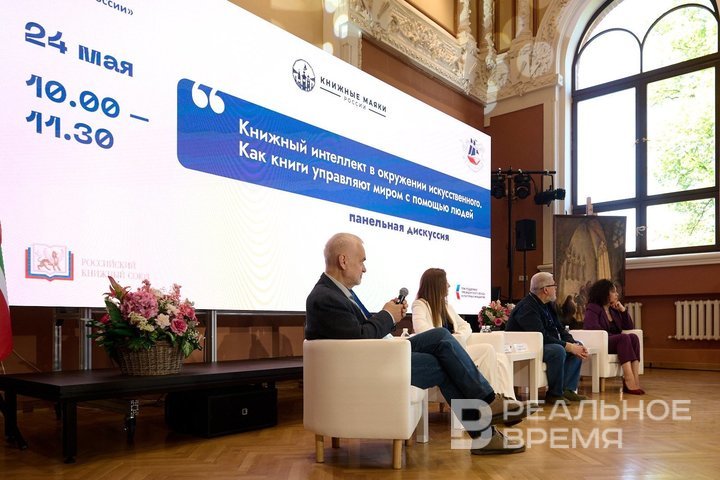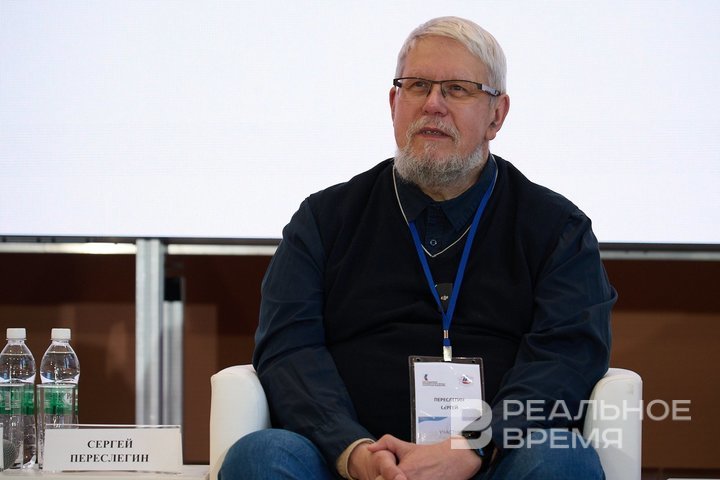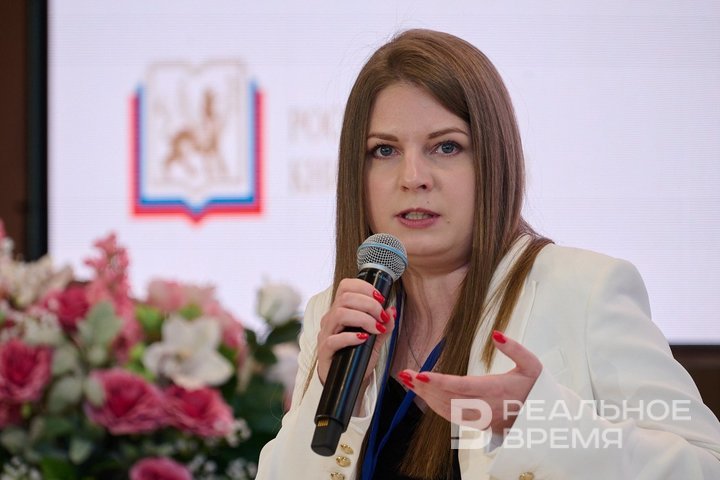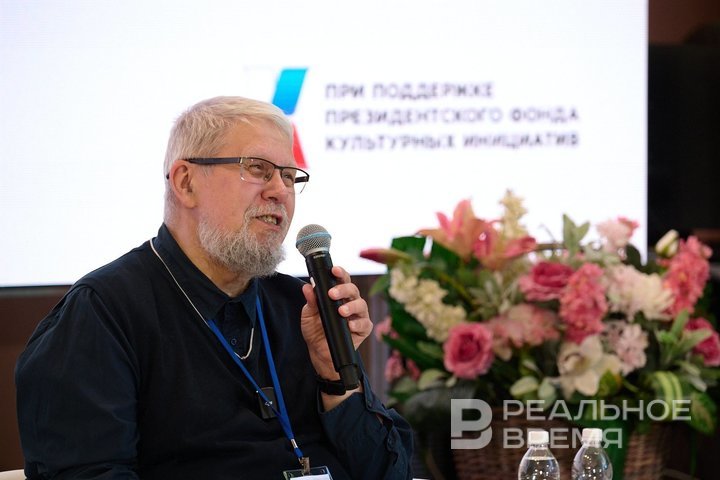Artificial Intelligence versus book smarts
At the Literary Flagship of Russia festival-forum, they discussed what the book of the future will be like

With the development of new technologies, and especially artificial intelligence, various future projects have appeared that should make our lives more comfortable. Today, the smart home system is already being actively used, and scientists and architects are developing smart city projects. A discussion was held at the Literary Flagship of Russia festival-forum, where participants in the book industry tried to present the book of the future and its interaction with artificial intelligence.
Intellect of Shamshi Adad, Shanidar and Gutenberg
Looking ahead, I will say that the discussion “Book intelligence surrounded by artificial” turned out to be quite philosophical and very futuristic. The focus of the discussion shifted from pragmatic tasks towards the future. The headliner of this discussion was definitely researcher and theorist of science fiction Sergey Pereslegin. In the interaction of book and artificial intelligence, he identified three stages that any intelligence has passed through in principle.
“The first of them is the intellect of Shamshi Adad, he was a famous leader in Babylonia. This is a person's ability to manage complex things, for example, complex organisation. Artificial intelligence works pretty well in this area right now. With only one exception: it needs to specify the control area. While a human is able to understand this on their own. The second type of intelligence is Shanidar's intelligence. He was a French archaeologist. This type of intelligence involves the ability to work with complex things, see complex civilisations, and create fundamentally new stories. There is no artificial intelligence here at all. And there is Gutenberg's intelligence, which has the ability to be complex. It turns out the following: a person can be complicated, and a book makes him so. The book can give an arbitrary number of anthologies and pictures of the world. The book can give differences between ideas about the truth," Sergey Pereslegin told his theory.

He added that artificial intelligence has only one truth — something that does not contradict the original data organisation. He can have as many anthologies as he wants, but they are indistinguishable to him. From here, Pereslegin concludes that artificial intelligence cannot have Gutenberg's intelligence. But it has another opportunity:
“AI can influence the Gutenberg universe and human interaction with this universe. Artificial intelligence can lead to that a huge volume of books that have already been written and that will be written in the future will acquire the property of a subject with complexity, Gutenberg intelligence," said Sergey Pereslegin.
The researcher believes that this subject of the future will be artificial, since it is not built in the human psyche and imagination, but by people as an extension of their thinking.
Hypertext: to be or not to be?
Yana Savelieva, the co-founder of the Center for Humanitarian Technologies and media technologist, returned the discussion to a more practical plane and told how artificial intelligence and social networks are changing behavioral habits, including the habit of information consumption among young people.

“The younger generation consumes a huge amount of information, but in portions and vividly. It's about clip thinking. However, modern youth has another feature — constant Internet surfing and switching from one topic to another. The same social media feeds offer funny videos first and then educational ones. It seems to me that the book in the future will also be something like this. It will allow the reader to click on the links embedded in it to immediately immerse themselves in a diverse universe, and not in the universe of one particular book," Savelieva said.
As an example, she cited the books of the Canadian cultural critic and philosopher Marshall McLuhan. There are many complex terms in his works that are unfamiliar to the untrained reader. Therefore, you need to constantly google the meaning of words, and look for the meaning that the author put into it.
“It seems to me that the book of the future will be connected with artificial intelligence so that a person can instantly solve this issue," Yana Savelieva added.

But Sergey Pereslegin did not agree with Savelyeva. He said that human thinking has always been only clip-type. Pereslegin argues that most human decisions are situational, and this, according to the researcher, is clip thinking.
“People have always thought in two- and three-minute constructions. The ability to read is the ability to connect these constructs into a whole. It appeared a long time ago and is unlikely to disappear. Speaking of that young people have clip thinking, we usually do not see their ability to combine a huge array of video content into a whole. From this I conclude that it is unlikely that hypertext experiments will be carried out in books. Such attempts have already been made. Milorad Pavić's books are a good example of this. It turned out that it was not necessary. The problem is that the unit is not a book, but something else: either a part of a book, or a group of books connected to each other, an array. And the younger generation now reads in arrays, and if there are also movies, TV series, and games in this array, then they absorb the array as a whole," Pereslegin explained.
The “array” of information he is talking about is now produced more in the West. For example, Star Wars. These are hundreds of books, several films, TV series, computer and board games. Similarly with The Game of Thrones and Lord of the Rings. In this regard, we are far behind the West. But, perhaps, Major Thunder can become such an “array”.
In general, so far we can only fantasise about what the book of the future will be like. But we know for sure that it will be different. And it will have both artificial intelligence and book intelligence.
Ekaterina Petrova — literary reviewer of Realnoe Vremya online newsppaer, author of Poppy Seed Muffins (Булочки с маком) telegram channel, and founder of the first online subscription book club Makulatura.